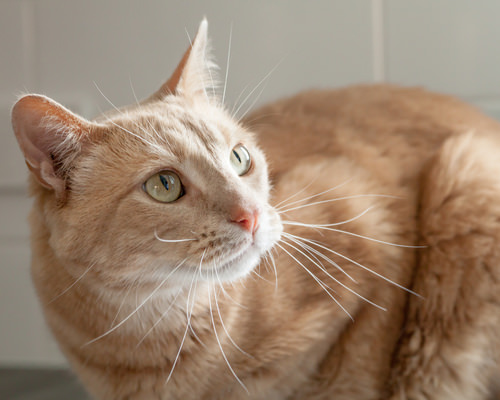
Cat lovers may not realize how important it is to know how much your cat is drinking. People equate water consumption with good health and when I ask, they often reply that the cat is drinking plenty. In truth, I am not worried about a cat that doesn’t drink enough. I am far more worried about a cat that is drinking too much.
It is critical that you pay attention to how much water your cat drinks and how often he or she uses the litter box to urinate. Make sure that you know how much water is typical for your cat, so that you will be alerted to any changes.
Some very significant diseases, that are common in cats, are heralded by changes in water consumption and secondary changes in urination. These things can include kidney disease and diabetes. There are other signs of these diseases, but sometimes the thirst is an early indicator, so it is worth making it your business to know. See my article What Are Signs My Cat Could Have Diabetes for more. There are other issues that can cause a cat to drink more than normal and you need to know if your cat suffers from any of them.
It can be difficult to monitor thirst and urination in homes where there are multiple cats. But try to pay attention to how often you are filling the water bowl. If you see your cat at the water bowl more than occasionally, make a mental note to mention it to your vet. If you use scoopable cat litter, pay attention to the size and number of urine clumps. If you notice a change, separate the cats, each with their own water source and litter box, long enough for you to know which cat to take to the vet. Measure the amount of water you offer and how often you have to refill and take the info with you to the veterinarian. Most vets have the ability to identify some of these disorders with in-house laboratory tests.
Sometimes these subtle clues are the first sign you will get that your cat needs medical assistance. If you wait too long these processes will have advanced further and could be harder to treat. Try to make a list of other things that you have noticed about your cat too, especially if she is middle aged (7-10 years) or older.
Cats are CAT-egorically awesome and you can find out more by following me on Facebook. Click here.

